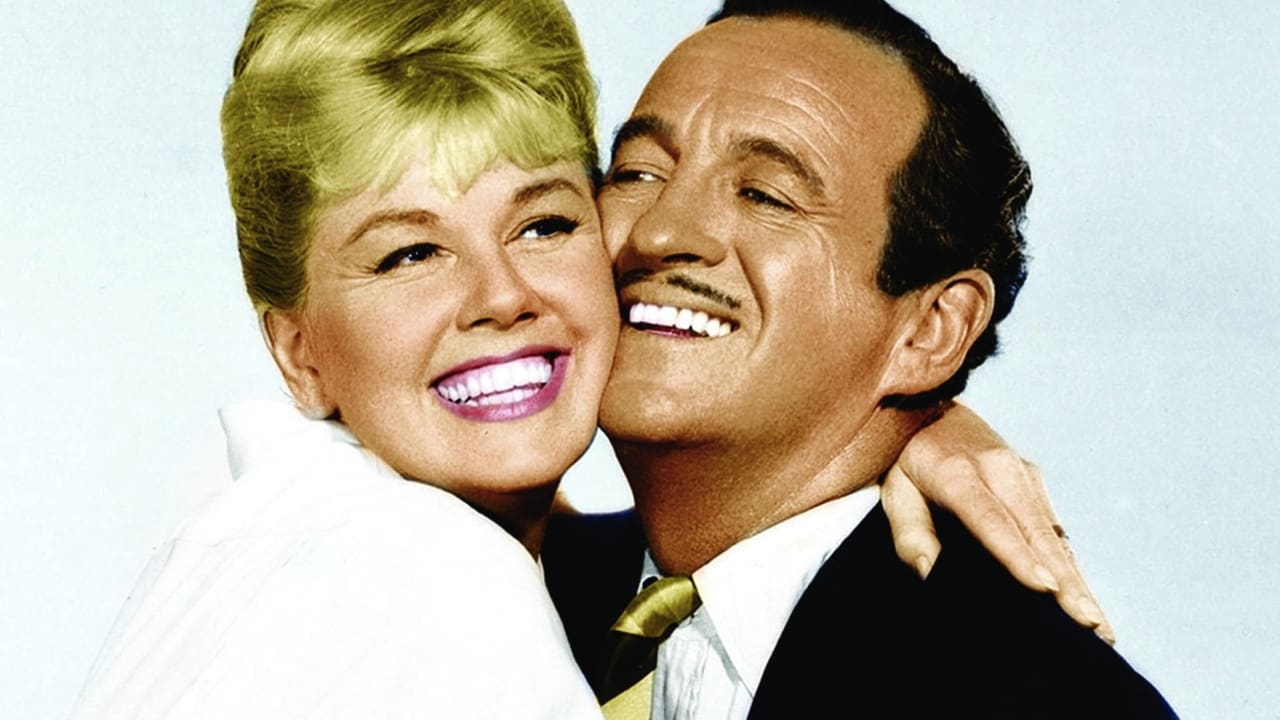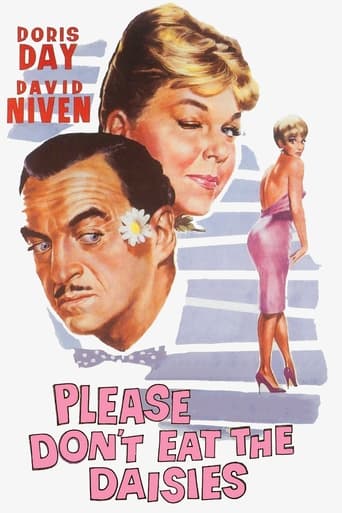

One who watches this movie simply for the comedy would be hard-pressed to rate it more than six stars. Viewing it only as a story about a family may earn it six or seven stars. Then there's a story about career and family conflict, about love, and what's most important. And, how about a standard theme of a man who works late or away from home and is enticed toward infidelity? What about the drama of a major change in one's profession and how it affects a person and one's spouse? Then there is the move from the city to the country, and associated major changes in lifestyle.A number of reviews have doted on that last point, seeing this film as a leftover from other films such as "George Washington Slept Here" of 1942, or "Mr. Blandings Builds His Dream House" of 1948. But the whole plot of those films revolves around the move from the city to the country and renovating a condemned property. If that's all I saw in this film, I would rate it no better than 4 or 5 stars. Because it doesn't have the humor of those two true comedies.But, "Please Don't Eat the Daisies" is much more than a simple plot film. It's really four or five or more plots neatly interwoven. 1st plot – Laurence Mackay (played by David Niven) moves from teaching theater at a major college (Columbia University?), to writing a book and becoming the latest Broadway critic for a major New York newspaper. 2nd plot – His loving and devoted wife Kate (played by Doris Day) manages four young boys in their Manhattan apartment with the help of a maid. She rushes to join her husband for the opening of a musical play being staged by a long-time friend and godfather to their children – Alfred North (played by Richard Haydn). Laurence struggles over his review with Kate. Finally, he has to tell the truth. He pans the play.3rd plot – North is furious about the review and vows to get even; and the star of the play, Deborah Vaughn (played by Janis Paige) joins his vendetta to get even with Laurence. 4th plot – The family moves from the city to the country, with all that entails – and it's a lot. 5th plot – Kate sees changes in Laurence as he has his new position of power. He's now more self-righteous and self-centered. He's unkind, even mean. He doesn't see it at first, naturally. More subplots fit in here – the community is going to put on a play and Kate is part of it. Deborah makes a play for Laurence, and although he is in unconformable situations with her, he remains faithful to Kate.Now, if one watches this movie from this standpoint, it is much more interesting and enjoyable. It's a movie about a major job change for the main breadwinner. It's a movie about a change in personality. It's a film about a feud with one's closest friend. It's a film about moving from the city to the country and upending of lifestyle. It's a film about raising four small boys and all that goes with that. It's about a couple who are madly in love with one another and who struggle with all of these things. And with this, there are sprinklings of humor here and there. Now it's a different movie, much more interesting, and even fun in places.Now it earns 7 to 8 stars – and I go for the 8 for two reasons. First, it has a fine cast all of whom give very good performances. Second, it's based on a best-selling 1957 book of essays by Jean Kerr with the same title. It's autobiographical, and the people and situations were real. Kerr was an author, playwright and songwriter. She wrote two books, several plays and stage scores and scripts for several musicals. Her husband was Walter Kerr, a writer, lyricist and director of several plays. So, his character in real life succeeded on the stage where Niven's character in the movie doesn't succeed. And, in real life, Walter Kerr was theater critic for the New York Herald Tribune from 1951-1966, and for The New York Times from 1966-1983.To top it all off, the couple collaborated on several musicals and they won two Tony awards for "Golidlocks" in 1958. In 1978, Walter won a Pulitzer Prize for criticism. The couple was married for 56 years and they had six children. Walter died in 1996 at age 83, and Jean died in 2003 at age 80. References about the couple state that Laurence Mackay in this movie is based on Walter Kerr. All of this would seem to lend credence to this film as being based on real people and events, with many interwoven plots.And, here's a closing punch that some may find interesting. It's a true example of how Walter Kerr could be a harsh critic if the play was bad in his eyes. It's from early in his career as a critic. The original musical of "Candide" opened on Broadway Dec. 1, 1956. It was directed by Tyrone Guthrie. In his New York Herald Tribune critique of the musical on Dec. 3, 1956, Kerr wrote, "Three of the most talented people our theater possesses – Lillian Hellman, Leonard Bernstein, Tyrone Guthrie – have joined hands to transform Voltaire's Candide into a really spectacular disaster. Who is mostly responsible for the great ghostly wreck that sails like a Flying Dutchman across the fogbound stage of the Martin Beck? That would be hard to say, the honors are so evenly distributed." The musical was a box office disaster. It had just 73 performances and closed after two months.
... View MoreBeing an honest theatre critic proves unexpectedly challenging for a college professor and his wife in this oddly titled comedy starring David Niven and Doris Day. The film is essentially two tales in one. It is partially about the theatre critic job getting to Niven's head and partially about the impact on Day who has to raise their four bratty children on their own (as he is so busy), something that eventually leads them to moving out of the city to the countryside where they experience new house woes. For a film so clearly structured as two overlapping tales, 'Please Don't Eat the Dasies' works surprisingly well. As an avid film-goer, it is easy to sympathise with Niven's desire to only give credit where credit is due when writing reviews, and as with Bob Hope's subsequent 'Critic's Choice', the film taps into the difficulty of resisting wittiness over descriptions when writing reviews. Day's dilemmas are not quite as interesting (and the film very awkwardly squeezes in no less than three songs for her to sing) but she is solid in her own right, noticeably suffocated under the weight of her children. On the downside, her kids are too obnoxious to ever be cute or really funny, but one might argue this as intentional. It is certainly at least hard to think of another mainstream movie that has managed to get away with playing up the locking up of a kid in a cage for laughs (!). Of course, the film's most unique aspect is its title, modeled on the contrary nature of the couple's kids who think nothing of eating all their daisies because they have never been told not to!
... View MoreAlthough made in 1960, this classic sampling of Doris Day fluff is more a product of the 50s than the coming decade of the 60s. As ever, Miss Day is gorgeous and perfectly turned out, this time the mother of four small boys, an aspiring playwright overshadowed by her theater critic husband, coping with a series of domestic crises while she attempts to move her family from a city apartment to an improbably ramshackle English-style country house. 'Improbable' is indeed the word for the entire plot of this movie, but then probability was seldom the reason we went to the movies in the 50s. Bouyed along by the bright force of Miss Day's personality, the light touch and easy charm of David Niven, and ably supported by Janice Paige, Spring Byington, and Richard Haydn, this pic has all the bouncy sweetness and escapism her fans so appreciate in Miss Day's work. So, if you are looking for a 2-hour time trip to what seems like a kinder and gentler time, don't mind bumping your nose against a few cultural idiosyncrasies of the 50s (and no Day fan can avoid that), enjoy discovering some charming but forgotten musical numbers, appreciate really great vintage clothes, and generally believe it is hard for Miss Day to do any wrong, this seldom-mentioned film is just the ticket!
... View MorePlease Don't Eat The Daisies (1960) is a little comedy study that is one year too late in celebrating the 50s sexual stereotype of 'the little woman'. It stars David Niven and Doris Day as Lawrence and Kay McKay. He's a Drama critic. She just wants to be a housewife. Their happy, if cramped, in a Manhattan apartment with four sons, David (Charles Herbert), Gabriel (Stanley Livingston), George (Flip Mark) and Adam (Baby Gellert). However, at the behest of Kay, the family departs the elegance of New York for suburbia and clean living. Well, almost.Seems Lawrence can't or won't entirely leave the Big Apple behind. That his work precludes a complete departure from the social depravity of Broadway stage door Johnnies and scheming starlets is an angle played up when it appears as though Lawrence has decided to sack Kay and family for the lovely and flirtatious Deborah Vaughn (Janis Paige). Complications ensue as long time friends Suzie Robinson (Spring Byington) and Alfred North (Richard Haydn) get involved though only manage to make a simple case of mistaken judgment develop into a full blown comedy of errors. And then, of course, there's the whole mix up with Reverend McQuarry (John Harding) that begs to be reconsidered.Based on Jean Kerr's humorous novel, ably adapted by Isobel Lennart, director Charles Walters directs with his usual panache, but is decidedly saddled with, and forced to do damage control over, Niven's central performance as the blundering Lawrence. Honestly, the poor man's made to look ridiculous around every corner an ill fit for one of the most accomplished and adroit British actors of his time. Day manages to come up with some winning moments, but she too has seem better days and far better material. This film perhaps foreshadows the sort of 'reluctant domestic' role that the rest of her tenure with Rock Hudson would carry over. Apparently, and despite its overall entertainment value shortcomings, there is something to be said for timing. 'Please Don't Eat The Daisies' played to solid box office and even found renewed life as a television sitcom starring Brian Keith. Go figure.The anamorphic transfer from Warner Bros. is just average. Colors are dated and sometimes even muddy. Blacks are not very deep or solid. Whites are generally clean but slightly yellow. Shadow and contrast levels are disappointing. Save Day's rendition of the title song, the audio sounds rather unnatural and strident. Dialogue is decidedly forward sounding with no spread across the channels. The only extra is a theatrical trailer.
... View More